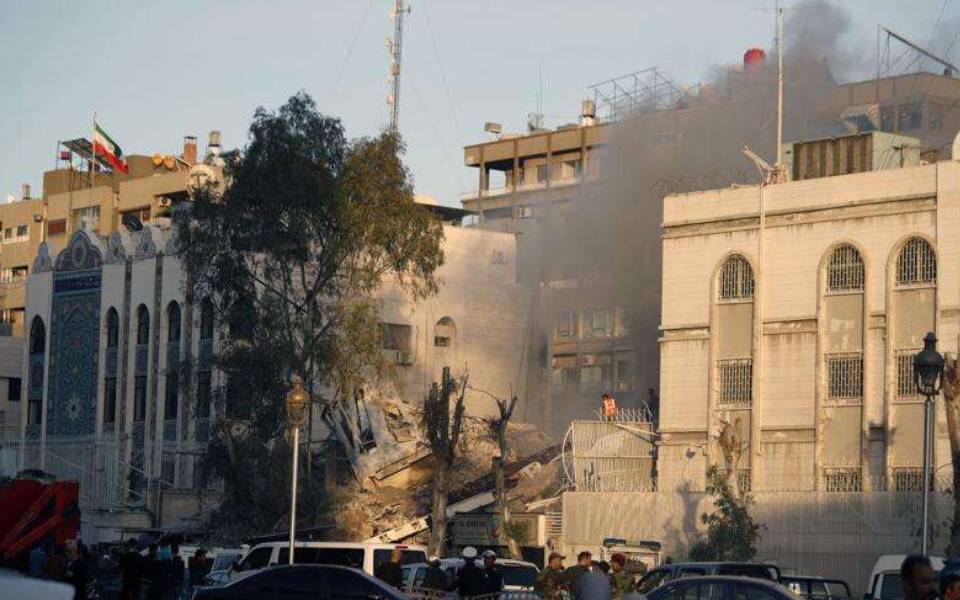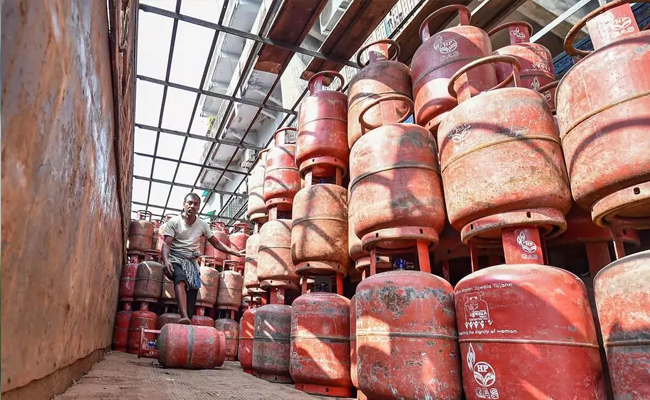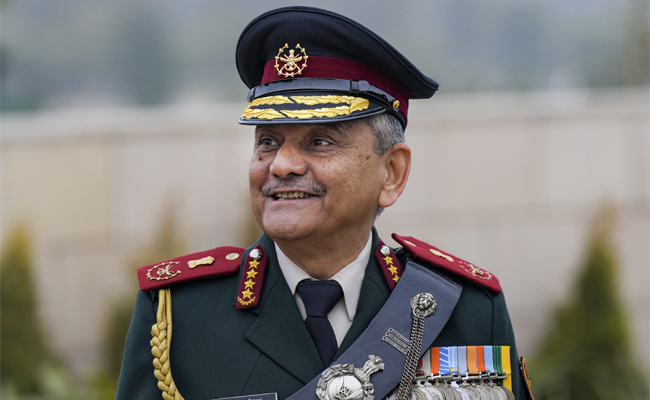Damascus, Apr 1: An Israeli airstrike has destroyed the consular section of Iran's embassy in Damascus, killing or wounding everyone inside, Syrian state media said Monday.
The Iranian Arabic-language state television Al-Alam and pan-Arab television station Al-Mayadeen, which has reporters in Syria, said the strike killed Iranian military adviser Gen. Ali Reza Zahdi. Zahdi previously led the Iranian elite Quds Force in Lebanon and Syria until 2016.
There was no official confirmation from Iran.
Syrian Foreign Minister Faisal Mekdad told the media after meeting Iran's ambassador, Hossein Akbari, that “several” people were killed, without further information. Iranian state television said the Iranian ambassador's residence was in the consular building, which stood next to the embassy.
State news agency SANA, citing an unnamed military source, said the building in the tightly guarded neighborhood of Mazzeh was levelled. First responders were searching for bodies under the rubble.
The Britain-based opposition war monitor the Syrian Observatory for Human Rights said the strike killed at least six people.
The Israeli military did not immediately comment. Israel has carried out hundreds of strikes on targets inside government-controlled parts of Syria in recent years.
Such airstrikes have escalated in recent months against the backdrop of Israel's war against Hamas in the Gaza Strip and ongoing clashes between Israel's military and Hezbollah on the Lebanon-Israel border.
Though it rarely acknowledges its actions in Syria, Israel has said it targets bases of Iran-allied militant groups such as Lebanon's Hezbollah, which has sent thousands of fighters to support Syrian President Bashar Assad's forces.
A report of a bombing near the Iranian embassy in Damascus Syria pic.twitter.com/AWPY0VS2JS
— Raylan Givens (@JewishWarrior13) April 1, 2024
Let the Truth be known. If you read VB and like VB, please be a VB Supporter and Help us deliver the Truth to one and all.
Thane (PTI): A 45-year-old man was killed, and his wife and son were injured when a portion of plaster from the ceiling collapsed in their flat in a seven-storey building in Thane on Saturday, officials said.
Chief of the Regional Disaster Management Cell, Yasin Tadvi, said the 16-year-old building is not listed in the "dangerous" category.
"The incident occurred in Karumdev Society at about 3 am. The plaster of the hall in a flat on the terrace floor suddenly fell while the occupants were asleep", he said.
Of the four people who were inside the room, two suffered minor injuries and were discharged after primary treatment, Tadvi stated.
The injured persons were identified as Arpita More (42), who suffered minor head injuries, and her son Arush More (16), who sustained injuries to both legs.
Manoj More (45), who sustained chest injuries, died during treatment at a private hospital.





